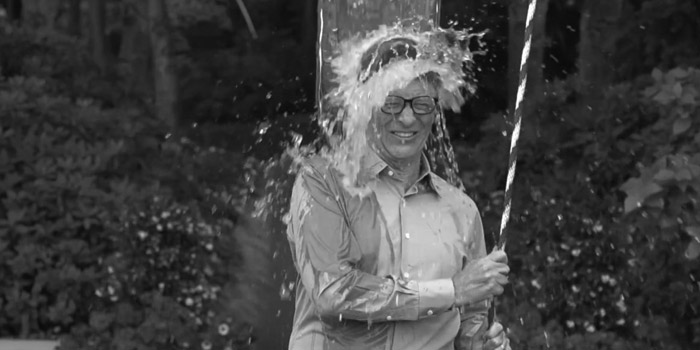When internet trends hit, it doesn’t take long until everyone and their grandmothers are taking part.
The newest fad is the Amyotropic Lateral Sclerosis (ALS) ice bucket challenge. The challenge is simple: Friends and family nominate one another to either donate $100 to ALS research or dump a bucket of ice-cold water on their heads. As of Sept. 7, the ALS Association (ALSA) has received $110.1 million in support. But what is ALS, and why should people donate?
ALS (Amyotropic Lateral Sclerosis) is a rare neurodegenerative disorder characterized by the rapid loss of motor control and progressive muscle weakness. Its pathology is defined by the degeneration of upper and lower motor neurons, leading to spasticity and the loss of voluntary muscle control. Fortunately, the senses and the autonomic nervous system are usually spared, leaving patients with the ability to continue hearing, tasting, and smelling.
While the majority of patients afflicted with ALS are seemingly random, there is a genetic component. Roughly 10 to 20 per cent of cases are a result of direct inheritance and can be traced to a defect on chromosome 21.
In Canada, the incidence of ALS is approximately two in every 100,000 people. There are roughly 3,000 Canadians living with ALS today. Survival rates are low; after the initial onset of symptoms, patients are given three to four years to live. Only five to 10 per cent of patients survive for more than 10 years.
Although research seems promising, a cure has yet to be found. Presently, treatments target symptom management and improving quality of life.
The Montreal Neurological Institute and Hospital’s ALS Clinic specializes in the treatment and diagnosis of ALS.
“The mainstay of [our] treatment is supportive through a multidisciplinary team,” stated Dr. Rami Massie, an attending neurologist. “The team includes neurologists, a geneticist, [a] respiratory therapist, [a] physiotherapist, [an] occupational therapist, [a] spiritual care therapist, [a] speech therapist, a specialized clinical nurse, a dietician, and our excellent secretary.”
The treatment for those afflicted by ALS requires efforts on many levels. Unfortunately, the breadth of this care stems from the elusiveness of an ALS cure.
According to Massie, the ALS clinic continues to have “Trials of new medications, genetic research, imaging projects, and a registry for ALS patients.”
Outside of Montreal, the Hadassah Medical Center in Israel has been conducting unprecedented adult stem-cell therapy for the treatment of neurodegenerative diseases—the first of its’ kind. Stem cells, which are harvested from patients’ bone marrow, can be grown into any new cells. These have then been used to replace the deteriorating motor neurons characteristic of the disease.
The ALS ice bucket challenge has attracted the participation of many celebrities. The list includes people from all backgrounds: Bill Gates, Charlie Sheen, Jennifer Lopez, and LeBron James. Some, such as Barack Obama, have declined the nomination, opting to donate generously to the ALS Foundation and other non-profit organizations instead.









